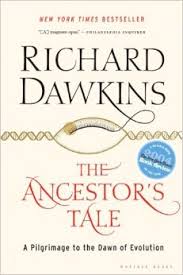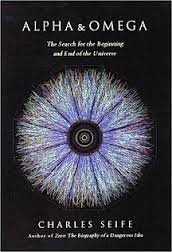Isaac Asimov had writer’s block once. It was the worst ten minutes of his life. – Harlan Ellison[1]
Isaac Asimov (1920-1992) was a Russian-born American writer and professor of biochemistry at Boston University. He was an extremely prolific writer, authoring almost 500 books, more than 350 short stories, and tens of thousands of letters. Asimov was considered to be a master of science fiction; he was a part of the “Big Three” of science fiction writers, along with Robert Heinlein and Arthur Clarke. His work was so prominent that he even coined some terms that are still commonly used today, such as “robotics.” Asimov wrote in a number of genres in addition to science fiction, including mysteries, history, and short stories. He also wrote guides to Shakespeare and the Bible. He is best known for his book series Foundation as well as the short story Nightfall.
Asimov considered his favorite work to be the story on which this course focuses. Entitled “The Last Question,” the story is set in the near future and is written with incredible insight considering that it was published in 1956. It revolves around a supercomputer, originally called the Multivac, and the question that two tipsy attendants ask of it seven days after the machine discovers how to fully utilize the energy of the sun.
Who better to introduce the masterpiece than Asimov himself? Before reading the actual story, consider Asimov’s reflections on his favorite work. Please enjoy the course, thoughtfully investigating Asimov’s take on the last question ever asked by humanity—Can entropy be reversed?—and the consequences of the question.
‘The Last Question’ is my personal favorite, the one story I made sure would not be omitted from this collection.
Why is it my favorite? For one thing I got the idea all at once and didn’t have to fiddle with it; and I wrote it in white-heat and scarcely had to change a word. This sort of thing endears any story to any writer.
Then, too, it has had the strangest effect on my readers. Frequently someone writes to ask me if I can write them the name of a story, which they think I may have written, and tell them where to find it. They don’t remember the title but when they describe the story it is invariably ‘The Last Question’. This has reached the point where I recently received a long-distance phone call from a desperate man who began, ‘Dr. Asimov, there’s a story I think you wrote, whose title I can’t remember–‘ at which point I interrupted to tell him it was ‘The Last Question’ and when I described the plot it proved to be indeed the story he was after. I left him convinced I could read minds at a distance of a thousand miles.
No other story I have written has anything like this effect on my readers—producing at once an unshakeable memory of the plot and an unshakeable forgettery of the title and even author. I think it may be that the story fills them so frighteningly full, that they can retain none of the side-issues. (Isaac Asimov, taken from his collection of short stories “The Best of Isaac Asimov”)
[1] Attributed. Page Fright: Foibles and Fetishes of Famous Writers (2009)
Version 1.0







